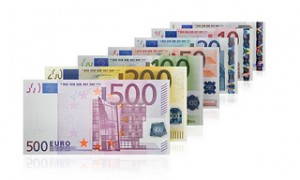 The concerns over the ability of Spain to fix its ailing bank system, while simultaneously trying to fix its shaky interior regions and reduce a gaping hole in its budget has helped send the cost of borrowing by the country to record highs on Monday.
The concerns over the ability of Spain to fix its ailing bank system, while simultaneously trying to fix its shaky interior regions and reduce a gaping hole in its budget has helped send the cost of borrowing by the country to record highs on Monday.
The high costs prompted Mariano Rajoy the country’s Prime Minister to call on the European Union to take action to help quell the turmoil in the market. Shares at Bankia dropped sharply following the country’s injection of $24 billion into the lender. The capital injection effectively nationalized the third-largest bank in the country.
Prime Minister Rajoy said the there was a need for defense of the euro, after the 10-year bond yield in Spain increased 0.18% to 6.47% on Monday, a new high for the year. The increase came on the heels of the country’s huge capitalization of Bankia.
The injection by the government was a dramatic escalation of its attempt to overhaul the ailing sector that has grappled with the collapse of the housing boom that lasted ten years. Costs of borrowing by countries at present levels are considered over the long term to be unsustainable.
Bankia shares dropped by nearly 29% during trading on Monday. Another bank with a large amount of exposure, Banco Popular Espanol SA, dropped in value by close to 8% to its lowest level in more than 16 years. Spain commissioned an external audit to be done of all the lenders in the country due to pressure from the European Union. The results will be released in June.
